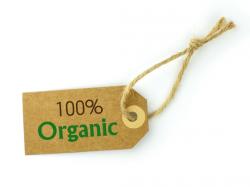Study: ‘Organic’ Labels Make Food Taste Healthier
April 10, 2013 | 1 min to read

PROBLEM: The rapid growth of the organic food industry is a good thing if it means that more people are supporting sustainable practices and avoiding unesecessary pesticides, but any $30 billion-a-year industry should be approached with caution. The wholesome-sounding "organic" label remains squarely on the fence between health and marketing.
METHODOLOGY: In the middle of a shopping mall food court, Cornell researchers recruited 115 passersby to participate in a taste test. The participants sampled what were labeled as the organic and non-organic versions of cookies, potato chips, and yogurt. In reality, the two types of each food were identical (and, incidentally, organic). They then rated the foods on taste (Was it appetizing? Flavorful? Did it taste artificial?) and perceived nutritional content, were asked to estimate how many calories each contained, and indicated how much they'd be willing to pay for snack-sized portions of each.
RESULTS: The participants guessed that the "organic" cookies, chips, and yogurt were 20 to 24 percent lower in calories than "regular" versions. They thought the organic foods "tasted lower in fat and calories" and higher in fiber as well, and perceived the cookies and chips, though not the yogurt, as tasting more nutritious. They were willing to pay up around 16 to 23 percent more for all three.
To read the rest of the story, please go to: The Atlantic
